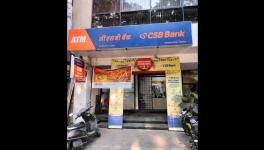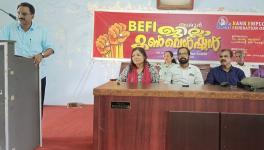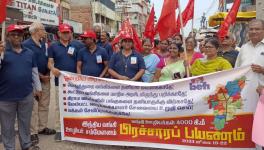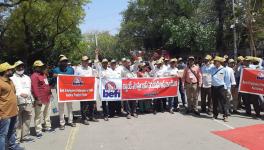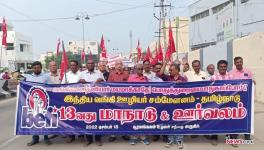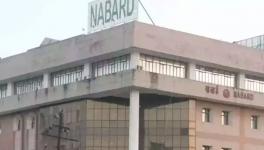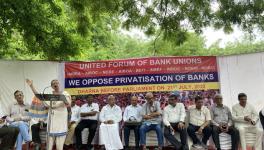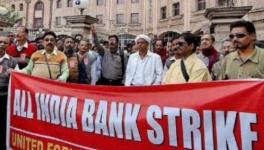Bank Employees’ Wage Deal Talks: Collective Bargaining of Unions Under Threat?
Representational use only
A threat is looming over the collective bargaining of the workmen and officers’ unions in the banking industry, as the final wage settlement remains to be signed, even after expiring of the stipulated time within which it was supposed to be finalised.
It has been alleged that differences are cropping up between the unions at a time when a small section of bank employees is demanding to return to tribunals or pay commission – on the lines of those in the case of central government employees – to decide over wage revision.
A memorandum of understanding (MoU) was signed between the lenders, represented by Indian Banks’ Association (IBA) and the United Forum of Bank Unions (UFBU), representing workmen bodies and officers’ associations, on July 22 this year. “The parties will endeavour to finalise the Bipartite Settlement/Joint Note within a period of 90 days,” from the date of signing the agreement, the MoU had stated. That period ended on October 20.
As part of the ongoing 11th bipartite settlement talks this time, a 15% hike in the existing wage bill of 35 banks – public, and some private and foreign – was agreed upon. The current talks were being held to decide upon the allotment of the wage hike under various salary components.
The wage revisions of bank officers’ and workmen have been pending since November 2017.
“It appears that some of the differences have cropped up between the negotiating officers’ and workmen unions over the percentage of special allowance,” Debasish Basu Chaudhary, general secretary, Bank Employees Federation of India (BEFI), told NewsClick.
A special allowance for all was introduced during the previous wage revision as a remuneration for performing additional duties within a bank, Chaudhary informed. “It was introduced in three slabs, with the first one – a 7.75% of basic pay – of special allowance covering all the workmen and officers up to scale 3,” he said.
Also read: Wage Deal Flayed by Bank Employees, Protest Held at 200 Branches
There is a chance, Chaudhary alleged, that this time there may be a difference in the percentage of special allowance that the two are being offered, which have created “differences”. However, he wasn’t sure about this, as BEFI was the sole constituent of UFBU to abstain from entering into the July agreement, thereby not being part of the ongoing talks now.
The union body was demanding merger of the special allowance with the basic pay, and cited it as a reason among others for its protest against the wage deal.
To be sure, four officers’ union in their internal note to their members, dated October 17, accused the IBA for derailing the finalisation for the bank officers. The unions claimed that their representatives were invited to sign the final wage agreement on October 18, however, they were informed “abruptly” a day earlier by the IBA of its “inability” to conclude the talks and finalise the agreement.
“The lame reason cited by them [pertaining to the development] was not signing the costing exercise with the Workmen Unions,” the note added.
Likewise, a circular dated October 16 by the four workmen unions to its members stated that an offer of special allowance at 16.4% – “same as being agreed by the Officers organisations” – was rejected by them, and in view of this the discussions with IBA currently stands incomplete. The workmen bodies are demanding this at 20%.
Calls made to Soumya Dutta, general secretary, All India Bank Officers’ Confederation (AIBOC), went answered. Whereas, C.H. Venkatachalam, general secretary, All India Bank Employees’ Association (AIBEA), refused to answer saying it being an “internal matter”. “The discussions will end once things are fully resolved,” he told NewsClick.
Both the bodies are among the signatories to the respective joint notes to their members.
Chaudhary said that the reason these differences are occurring is also because of the IBA insisting upon finalising different agreement with the workmen and officers’ union. “This is the first time that such a thing is happening,” he said.
BEFI has already cited its “principled opposition” to the introduction of a performance-linked incentive (PLI) – first of its kind – as part of the salary structure of state-owned bank employees under the current wage deal. “A PLI is a threat to uniform pay structures and service conditions in the banking,” Chaudhary reasoned.
Meanwhile, there are two court cases that are “further delaying the process” of the wage revision, believes Thomas Franco, former general secretary, AIBOC.
A petition filed in Madras High Court by one retired bank officer and another one in Allahabad High Court by “United Forum of We Bankers” is demanding a return to tribunals or pay commissions for revising wages in the banking industry.
“Such demands are not suitable, for we know how ineffective tribunals were in achieving desired results during the 1960s. It has only due to years of struggle that we achieved the bipartite settlement system in deciding over wages,” Franco said, adding that the petitions are only causing a delay in the process and won’t likely to have much affect.
Reacting to this, Chaudhary of BEFI said, “All and all, it can only be viewed as a concerted effort taking place in challenging the collective bargaining of workmen and officers in the banking industry – celebrated since 1966.”
It was in 1966 that the first ever sector-wise, pan-India Bipartite Settlement was signed between the lenders and the bank unions.
Get the latest reports & analysis with people's perspective on Protests, movements & deep analytical videos, discussions of the current affairs in your Telegram app. Subscribe to NewsClick's Telegram channel & get Real-Time updates on stories, as they get published on our website.









